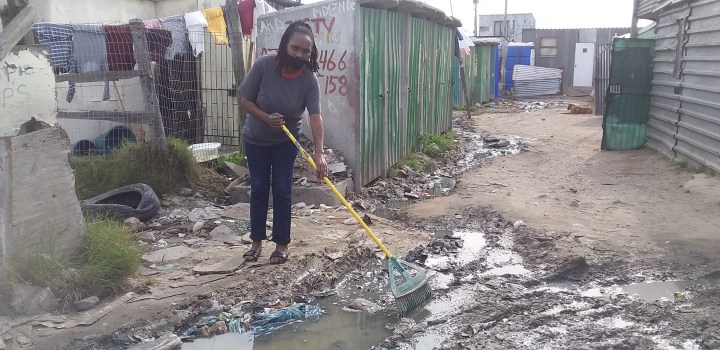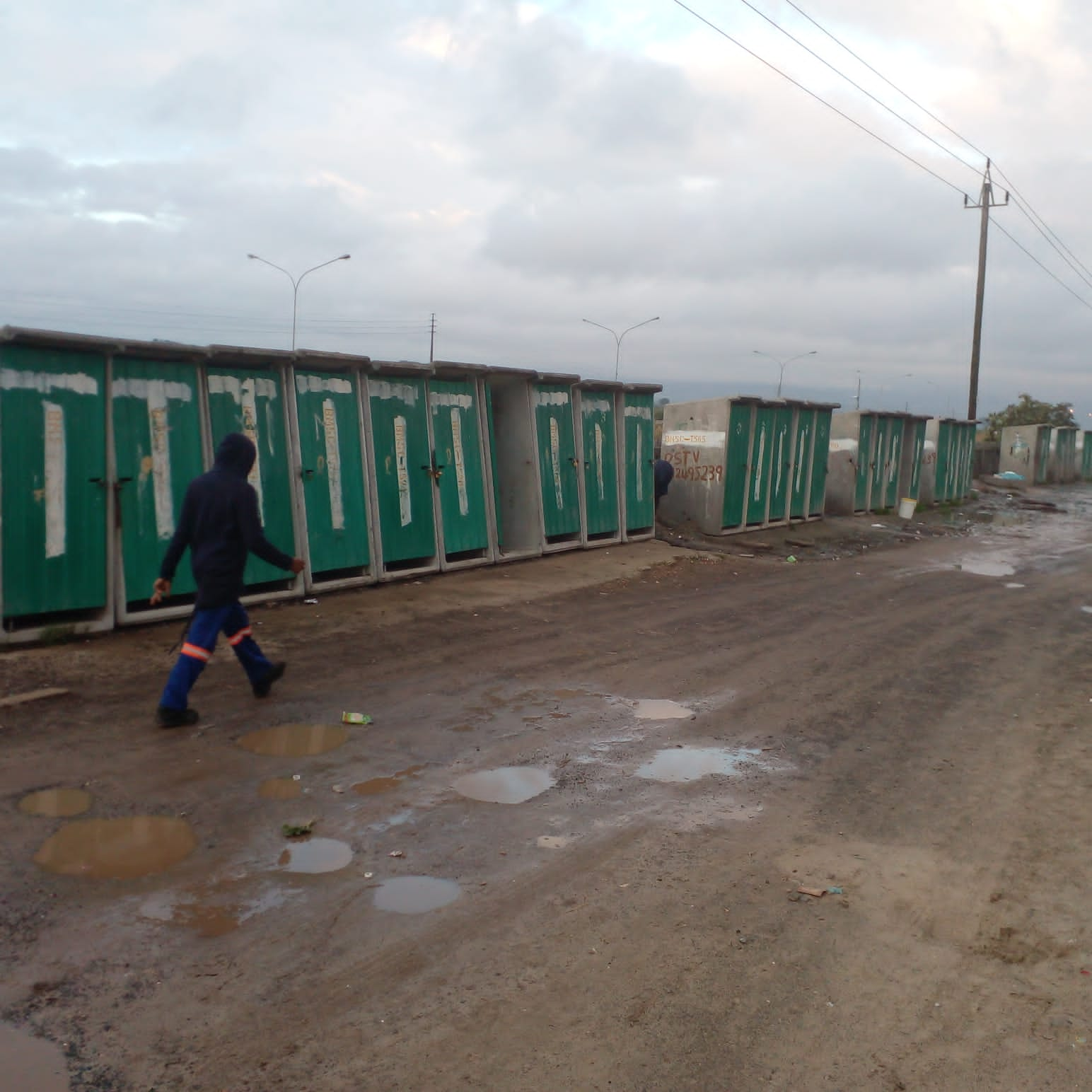GROUNDUP SERVICE DELIVERY
Broken toilets, overflowing sewage problems persist in many Cape Town informal settlements

In a Khayelitsha neighbourhood, it’s so bad that instead of using the City-supplied toilets, people are defecating in buckets and throwing the waste in a field.
Every morning Mavis Saunders from Harry Gwala informal settlement in Philippi, Cape Town wakes up to puddles of foul-smelling sewage water outside her door. Her shack is near a broken pipe that has been overflowing for nearly nine months.
Saunders has been living in the area since 1996. She shares a four-room shack with four children. She says the overflow is caused by blocked toilets in the settlements.
Saunders says City officials have visited the area several times but leave without fixing the toilets. When residents question the officials, they are told it’s a different department’s duty, she says.
Community leader Nosakhele Zenzile says there are more than 1,000 shacks in Harry Gwala. The City installed 120 flush toilets but only ten currently work. “I know the number because we counted them a few days ago,” she says.
“The only thing the City’s solid waste and sanitation departments are doing is pointing fingers at each other on who should fix the toilets,” she says.
City official Lisle Brown told GroundUp that they are investigating the issue.
Across the city’s informal settlements there are generally two types of communal toilets that the municipality provides: portable chemical ones — often called by their brand name “Mshengu” toilets — and flush toilets in concrete enclosures. The latter are generally better, if they don’t get clogged up.
Toilets blocked in Khayelitsha
Bonga Zolisa of the Social Justice Coalition said blocked toilets have become a big problem in Cape Town settlements.
At BM informal settlement in Khayelitsha, residents say 130 toilets in the area are either blocked or vandalised. Many people now relieve themselves in buckets inside their shacks and then throw the waste on the open field next to the N2.
Resident Pumeza Naka, who lives in a one-room shack with her daughter, said she tries to relieve herself while at work but uses a bucket when at home.
At Qaduqadu informal settlement, on average about ten families share one portable chemical toilet each and these are emptied three days a week.
Ward 89 Councillor Thando Mpimpi oversees both BM and Qaduqadu. He acknowledged that most of the toilets in BM Section have not been working for two years. “Some toilets were not properly installed. People stopped using them in fear that they might fall while they are inside,” he said.
Mayco Member for Water and Sanitation Zahid Badroodien said the City is fixing toilets in need of repairs in BM informal settlement. He said damaged toilets would be replaced in the next financial year.
Regarding Qaduqadu, Badroodien said there are approximately 390 chemical toilets in the area for approximately ten households per toilet.
“The City shares residents’ preference for full flush toilets. These are cheaper to install and maintain, but it is not always possible to install flush toilets for various reasons, including a high water table,” said Badroodien. DM

Rows of broken and dilapidated toilets in Khayelitsha. (Photo: Nombulelo Damba-Hendrik)
First published by GroundUp.

















This fills me with sadness. It is foolishness on steroids. Surely there is management expertise in the City that can organise toilets of whatever type. Community groups can surely be rallied and coordinated to contribute to managing facilities provided. As a rate payer if my toilet blocks or is a problem I fix it. Why must a poor person be totally absolved of responsibility to help themselves. They deserve help, equally there is a responsibility to help irrespective of economic circumstance. Expectation of everything for free is a poor direction. Engagement and joint responsibility is a better model.